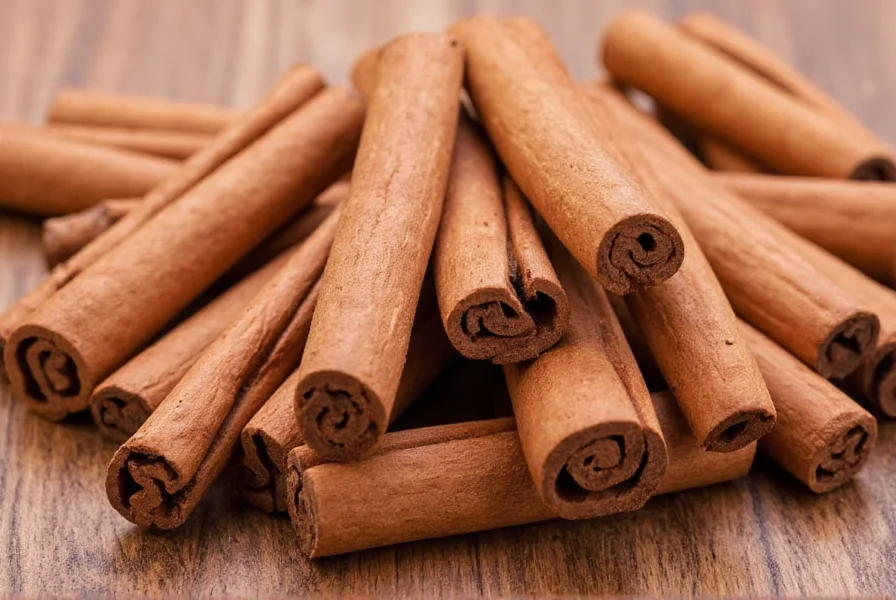Cinnamon isn't just a flavorful spice that transforms ordinary dishes into aromatic delights—it's a powerhouse of potential health benefits backed by scientific research. With origins tracing back thousands of years to ancient civilizations, this versatile spice has maintained its relevance not only in kitchens worldwide but also in traditional medicine systems. Modern research continues to uncover how this common pantry staple may contribute to better health when incorporated wisely into your daily routine.
Science-Backed Health Benefits of Cinnamon
Multiple studies have demonstrated cinnamon's impressive biological activities. The spice contains cinnamaldehyde, the compound responsible for its distinctive flavor and aroma, which appears to be primarily responsible for many of its health-promoting properties. Let's examine the most well-researched benefits supported by clinical evidence.
Blood Sugar Regulation and Insulin Sensitivity
One of cinnamon's most studied benefits relates to blood sugar management. Research published in the Journal of the American Board of Family Medicine found that cinnamon supplementation significantly reduced fasting blood glucose levels in people with type 2 diabetes. The spice appears to mimic insulin and enhance glucose uptake by cells, while also slowing carbohydrate breakdown in the digestive tract.
For those wondering what is good for cinnamon regarding diabetes management, studies suggest consuming 1-6 grams daily (about 1/2 to 2 teaspoons) may improve insulin sensitivity and help maintain healthier blood sugar levels after meals. However, cinnamon should complement—not replace—standard diabetes treatments.
Powerful Antioxidant Properties
Cinnamon ranks exceptionally high on the ORAC (Oxygen Radical Absorbance Capacity) scale, which measures a food's antioxidant capacity. In fact, it contains more antioxidants per weight than many fruits and nuts. These antioxidants, including polyphenols, help combat oxidative stress and reduce damage from free radicals.
| Antioxidant Type | Concentration in Cinnamon | Primary Benefit |
|---|---|---|
| Polyphenols | 83.5 mg/g | Reduces oxidative stress |
| Proanthocyanidins | High | Anti-inflammatory effects |
| Phenolic acids | Moderate | Cellular protection |
Anti-Inflammatory Effects
Chronic inflammation contributes to numerous health conditions including heart disease, cancer, and neurodegenerative disorders. Cinnamon contains compounds that inhibit inflammatory pathways in the body. A study in Nutrition Research demonstrated that cinnamon supplementation reduced inflammatory markers like TNF-α and IL-6 in participants with metabolic syndrome.
For those exploring what is good for cinnamon's anti-inflammatory properties, research suggests regular consumption may help reduce systemic inflammation, potentially benefiting conditions like arthritis and other inflammatory disorders.
Heart Health Support
Several studies indicate cinnamon may improve multiple risk factors for heart disease. Research shows it can reduce levels of total cholesterol, LDL ("bad") cholesterol, and triglycerides while maintaining HDL ("good") cholesterol levels. A meta-analysis published in Nutrition Journal concluded that cinnamon supplementation significantly improved lipid profiles in patients with metabolic disorders.
Culinary Applications: What Foods Is Cinnamon Good For?
Beyond its potential health benefits, cinnamon enhances flavor profiles across numerous culinary applications. Understanding what is good for cinnamon in cooking can help you maximize both taste and potential health benefits in your meals.
Sweet Applications
Cinnamon naturally complements fruits, especially apples, pears, and bananas. It's a staple in baked goods like cinnamon rolls, apple pie, and snickerdoodles. For healthier options, try adding cinnamon to:
- Oatmeal or other grain porridges
- Yogurt with fresh fruit
- Smoothies for added warmth
- Homemade granola
Savory Dishes
Many people don't realize cinnamon works beautifully in savory applications too. In Middle Eastern and North African cuisines, it's commonly used in meat dishes, stews, and rice preparations. Try adding a pinch to:
- Curries and tagines
- Chili and tomato-based sauces
- Roasted vegetables (especially sweet potatoes and carrots)
- Marinades for chicken or lamb

Types of Cinnamon: Which Is Best for You?
Not all cinnamon offers the same benefits or safety profile. Understanding the differences is crucial when determining what is good for cinnamon consumption.
Ceylon vs. Cassia Cinnamon
The two most common varieties are Ceylon cinnamon ("true" cinnamon) and Cassia cinnamon (the more common, less expensive variety found in most supermarkets).
- Ceylon cinnamon: Lighter in color, more delicate flavor, contains significantly less coumarin (a compound that can be harmful in large amounts)
- Cassia cinnamon: Darker, stronger flavor, more affordable, but contains higher levels of coumarin
For regular consumption, especially for health purposes, Ceylon cinnamon is generally preferred due to its lower coumarin content. The European Food Safety Authority recommends limiting coumarin intake to 0.1 mg per kg of body weight daily.
How to Incorporate Cinnamon Into Your Daily Routine
Knowing what is good for cinnamon usage helps maximize benefits while avoiding potential issues. Here are practical ways to include this spice in your diet:
- Add 1/2 teaspoon to your morning coffee or tea
- Sprinkle on oatmeal, cereal, or yogurt
- Mix into smoothies for added warmth
- Use in homemade salad dressings
- Add to roasted vegetables for depth of flavor
- Include in healthy baked goods using whole grain flours
The generally accepted safe daily amount is 1-2 teaspoons (2-4 grams) of Cassia cinnamon or up to 1 tablespoon (5-6 grams) of Ceylon cinnamon. Consuming cinnamon with food enhances absorption of its beneficial compounds.

Potential Side Effects and Precautions
While cinnamon offers numerous benefits, it's important to understand potential concerns when determining what is good for cinnamon consumption limits.
Coumarin Content
Cassia cinnamon contains higher levels of coumarin, which in excessive amounts may cause liver damage in sensitive individuals. Those with liver conditions should opt for Ceylon cinnamon and limit intake.
Medication Interactions
Cinnamon may interact with certain medications, particularly those affecting blood sugar or blood thinning. If you take diabetes medication or blood thinners, consult your healthcare provider before significantly increasing cinnamon intake.
Allergic Reactions
Though rare, some individuals may experience allergic reactions to cinnamon, particularly when used topically. Oral consumption is generally well-tolerated at culinary doses.
Conclusion: Maximizing Cinnamon's Benefits
Cinnamon's dual role as both a flavorful culinary ingredient and a potential health-supportive spice makes it a valuable addition to most diets. When considering what is good for cinnamon applications, remember that moderation is key—incorporating reasonable amounts into your regular meals provides flavor enhancement and potential health benefits without risk.
For optimal results, choose Ceylon cinnamon when possible, use it regularly but in moderation, and combine it with other healthy lifestyle practices. While cinnamon shouldn't be viewed as a miracle cure, its impressive nutritional profile and versatility make it one of the most beneficial spices you can keep in your kitchen.
Frequently Asked Questions
What is the recommended daily amount of cinnamon for health benefits?
For Cassia cinnamon, 1-2 teaspoons (2-4 grams) daily is generally considered safe. For Ceylon cinnamon, up to 1 tablespoon (5-6 grams) is acceptable. These amounts provide potential health benefits while staying within safe coumarin limits, especially important for those with liver concerns.
Can cinnamon help with blood sugar control for diabetics?
Research suggests cinnamon may improve insulin sensitivity and help moderate blood sugar spikes after meals. Multiple studies show modest improvements in fasting blood glucose levels with regular cinnamon consumption. However, it should complement—not replace—standard diabetes treatments and medications.
What's the difference between Ceylon and Cassia cinnamon for health benefits?
Both varieties offer similar health benefits, but Ceylon cinnamon contains significantly less coumarin—a compound that can be harmful in large amounts. For regular consumption, especially for health purposes, Ceylon is generally preferred. Cassia is more common and less expensive but should be consumed in more limited quantities due to higher coumarin content.
How can I incorporate cinnamon into savory dishes?
Cinnamon works well in many savory applications. Add a pinch to curries, stews, chili, tomato-based sauces, or marinades for meats. It complements roasted vegetables (especially sweet potatoes and carrots) and can be included in spice blends for Middle Eastern or North African dishes. Start with small amounts (1/4-1/2 teaspoon) to avoid overpowering other flavors.
Does cinnamon have antimicrobial properties?
Yes, cinnamon contains compounds with demonstrated antimicrobial effects. Research shows cinnamon oil and extracts can inhibit the growth of certain bacteria, fungi, and yeasts. While you shouldn't rely on cinnamon as a primary antimicrobial treatment, its natural properties may contribute to food preservation and potentially support oral health when used in moderation.











 浙公网安备
33010002000092号
浙公网安备
33010002000092号 浙B2-20120091-4
浙B2-20120091-4